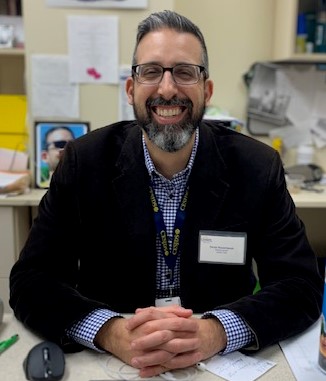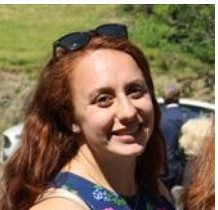Educating our children during COVID-19: Our Tzevet shares their experiences with us
Each and every one of us has been impacted by COVID-19 – whether we are working and studying at home; socially distancing ourselves from our friends and loved ones; working in direct service to care for those in need of medical attention; or continuing to teach students remotely. Many of our summer tzevet (staff) are educators both in day schools and public schools.
Today we pay tribute to all our educators who, in addition to caring for their families in these very stressful times, are caring for “our” children by creating virtual classrooms and bringing a sense of normalcy and structure to their day. We are so appreciative of the dedication and the extraordinary impact that they are all having on children every day!
Yvonne White (Palmer Staff Support Specialist), Hannah Glickman (former Palmer Rosh Edah) and Derek Rosenbaum (DC Day Camp Yoetz) took time from their busy schedules to share their experiences with us.
Yvonne White teaches preschool children with special needs at Rock Creek Forest Elementary School in Chevy Chase, MD.
We all know that creating and successfully executing a lesson plan in a physical classroom can be challenging. Now, teachers are faced with many new obstacles. First and foremost, a virtual classroom can only exist if everyone has the necessary tools – in this case, a computer, an internet connection, and technology training. Yvonne was pleased to share that Montgomery County Public Schools distributed over 30,000 Chromebooks to students and provided internet access to families that did not have it. Yvonne and her co-workers received three days of extensive training on online platforms and on how to work with families to meet the needs of their highly impacted children at home. Yvonne spent quite a bit of time helping parents learn how to use the online platforms.
Yvonne’s day consists of teaching her entire class for about an hour each morning, then meeting individually with each student and/or their parents twice a week. Her students have physical and cognitive challenges that impact how they access learning, and so it is necessary that an adult work alongside each student throughout the class. Yvonne shares that “it is so heartwarming to see the dedication and love of each parent. I want my students to remain safe and healthy so that we can continue to learn and grow together, virtually for now, and in the classroom in the hopefully not so distant future.”
Derek Rosenbaum is a middle school Judaic Studies teacher at Charles E. Smith Jewish Day School (CESJDS) in Rockville, MD, primarily teaching Tanakh (Bible studies).
studies).
Derek shared that CESJDS has provided the staff with tremendous technical and emotional support, including instructional documents, videos, and live training sessions to help shift to the Zoom and Google Meet platforms.
Because CESJDS provides all middle school students with a school-issued laptop computer, teachers were able to begin remote teaching with little delay. In addition, CESJDS began planning for closure in the weeks leading up to at-home learning, which made the transition to a virtual classroom much easier.
When asked how his students and their parents are adjusting to virtual learning, Derek shared, “it is a mixed bag. Some students are thriving with fewer distractions and opportunities to explore areas of interest in creative ways. Other students struggle more without a familiar routine and face to face instruction. Overall, the parents have been incredibly supportive of their children and the school’s response to this challenge.”
While Derek’s job and primary focus is to teach his students Tanakh, his main concern at the present time is their social and emotional well-being. He explained that “isolation at this hyper-social stage of their lives may have significant impacts on their development.” He is grateful, however, for a silver lining: his students’ increased empathy and kindness.
Derek concluded by saying, “teaching Tanakh in this pandemic presents unique opportunities. Looking at Pesach through the lens of a plague impacting the entire world was surreal. I will continue to search for and highlight meaningful connections between biblical text and the quickly changing world we live in.”
Hannah Glickman teaches history and writing to high school students with special needs at Washington Leadership Academy Public Charter School in Washington, DC. 
All receive a Chromebook from the school at the beginning of the year. This, coupled with preliminary administrative planning regarding the switch to online learning, made for a seamless transition once the decision was made to close the physical school.
Hannah shared that she spends most of her time creating asynchronous assignments for students to complete on their own time, as well as texting/emailing students and their parents. In addition, she teaches a half-hour live lesson every day, and video chats with various students helping them complete their work throughout the day.
Hannah finds it challenging to guide students to correct their work and improve their writing. There is also a much greater lag time between when students complete work and receive feedback, which makes learning that much more difficult.
Hannah is grateful that her students and their families are handling online learning well, but all the kids have expressed how much they miss going to school, seeing their friends, and being outside. She worries about the instruction that her students are missing and the learning gaps that will grow through the end of the year. She recognizes that she is extremely lucky to work for a school that was incredibly well prepared for this closure, but it is still a struggle for the staff to continue providing a quality education and ensure their students’ health and well-being.